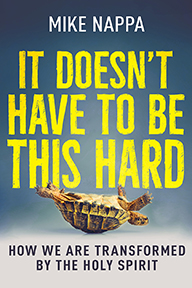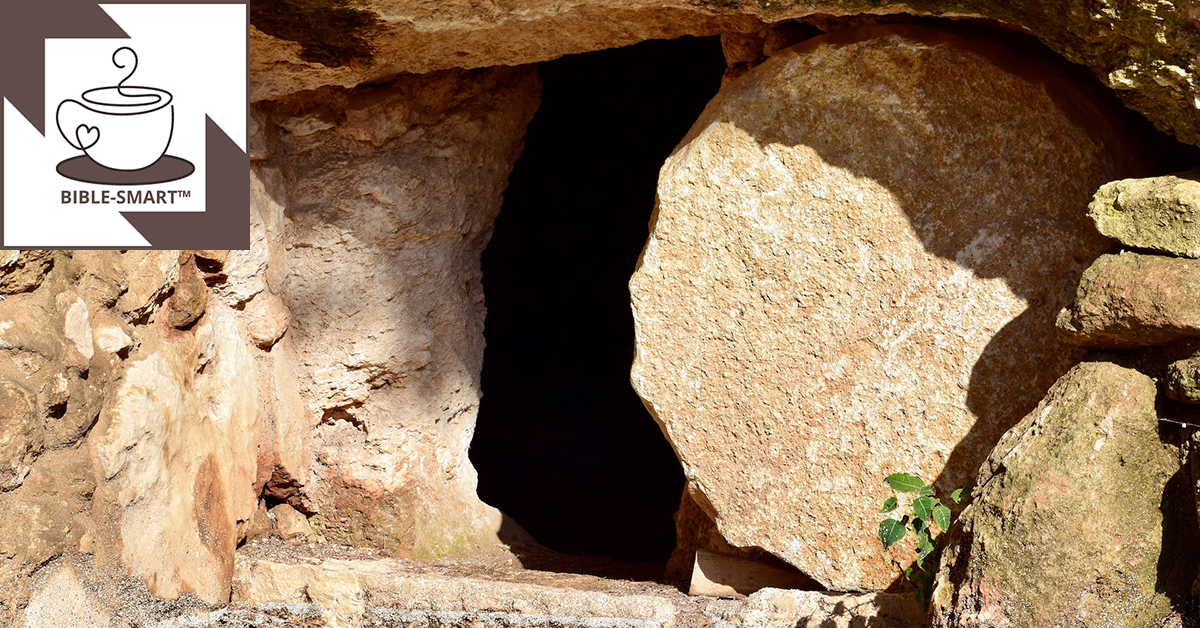Scripture: 1 Thessalonians 5:16-18
“Hold your breath. Make a wish. Count to three…”
So begins the classic theme song from the 1971 fantasy film, Willy Wonka and the Chocolate Factory. It’s a delightful melody—except that many of us have unintentionally adapted it as a model for self-serving use in our daily prayers. When it’s time to pray, we find ourselves unconsciously thinking:
“Close your eyes. Make a wish. Say amen…”
But your prayers don’t have to be singsong exercises in personal gratification. See for yourself—try one (or all!) of these 6 creative ways to pray unselfishly today.
1. Lectio Divina Prayer
Learning to pray unselfishly requires first building a habit of praying away from yourself—of turning your inward thoughts to outward interests. This is the power of Lectio Divina, the practice of “divine reading.” An ancient spiritual discipline, it empowers us to focus our prayers on Scripture instead of ourselves—a method that helps us internalize and pray God’s words back to him.
In the Spiritual Disciplines Handbook, theologian Adele Ahlberg Calhoun describes it this way: “Lectio divina invites us into God’s presence to listen for his particular, loving word … rooted in the assurance that every part of the biblical story—letters, parables, Gospels, Prophets, history—is inspired and can give voice to God’s particular word to us.”
Are you curious yet? If so, then you can try it now. Here’s how Lectio Divina works:
- Silencio (“silence”). First, take a moment to breathe in silence, preparing to hear from God.
- Lectio (“reading”). Read a Scripture passage out loud to yourself.
- Meditatio (“meditation”). Read the passage again, out loud or silently, pausing to reflect on any words or phrases that seem to catch your attention.
- Oratio (“prayer”). Speak to God in prayer about the Scripture passage. Pray it back to him as is appropriate, Ask questions, make promises. Speak the Scripture into his ear while he whispers them into your heart.
- Contemplatio (“contemplation”). Before saying “amen,” take time to contemplate what an answer to your Lectio Divina prayer might look like, and yield your will to God’s intentions in your prayer.
2. Paint-a-Prayer
No, you don’t have to be an artist to pray unselfishly in this kind of prayer (although if you are an artist, you’re going to like it a lot). You can use paints, or crayons, or colored gel pens, or even just pencils and ink. The medium doesn’t matter—only the heart does.
This creative prayer is a form of intercession that visualizes your desires for God’s blessing and kindness on others. You can use it to pray unselfishly for friends or loved ones, but in the spirit of 1 Timothy 2:1-3, I’d encourage you to use Paint-a-Prayer as a means to intercede for your world at large: For government leaders, for nations and states, for people who are poor or oppressed, for pastors and priests and corporate employers and so on.
First, choose a prayer subject (such as any of the ones mentioned in the previous paragraph). Though it may seem counter-intuitive, it’s important to limit your prayer to just one subject, for instance, your government leaders or the family down the street.
Next, make a list of the kinds of things you’d like to speak to God regarding that subject. You can speak gratitude, sorrow, hopes, repentance, requests—anything you want to be sure to mention.
Now take a sheet of blank paper (or a canvas if you’re so inclined), gather painting or drawing supplies, and create a visual representation of the prayer you want to make. Let each stroke and line and color become a new, visual expression of your hope in prayer. Spend as long as it takes to create the image you want to present to Jesus, because that image itself, and your labor in creating it, is your prayer.
When you’re done, you can either keep the image to pray it again in the future, or use it to prompt new verbal prayers, or even share it with the subject of your prayer as a means of encouragement. (How cool would it be if the governor of your state got your prayer in the mail? I’m just sayin’.)
3. Listening Prayer
I learned this one from Bible teacher, Jody Brolsma, in her book, Praying to Change Lives. It seems that she was at a conference when a speaker invited everyone to picture a friend sitting with Jesus, and to do that for one full minute. At the end of the minute, the speaker said, ask Jesus what he’d like you to share with that friend. Then …
Just listen.
Sit and wait until you hear what God might want you to say to someone you love.
Brolsma reports, “When I asked Him what He wanted to tell me about Kelsey, the image was as clear as day: … ‘Kelsey? I love her! I’m so pleased with her.’ What a joy to share this with my friend! We both had tears in our eyes as we soaked in Jesus’ love.”
This is what a Listening Prayer of intercession is like. It’s taking a moment to intentionally hear from God, to let Jesus guide your thoughts in regard to someone you love. You may be surprised at how quickly Christ speaks to you!
A warning though: Once you start to pray unselfishly like this, you may never want to stop.
4. Park-It Prayer
There are those who like to quote the mantra, “Children are our future.” While I certainly agree with that sentiment, I’d like to point out what those people sometimes forget: “Children are our today.”
That child in your neighborhood or church doesn’t have to wait 18 years before he or she has meaning to God, or until that person can make a difference in God’s world! Christ works today, right now, in and through the lives of children that surround you. His Holy Spirit has instituted no age limit on his grace or power. Maybe it’s time we began to partner with him in that understanding, to pray unselfishly for those kids he’s using to make a difference today?
So try this:
Go to a nearby park (or indoor location if weather is inclement) where children gather. Don’t stalk anybody or act weird or scare a parent or child—but sit at a distance where you can see children playing. Then begin a conversation with Jesus about each child you observe.
That little red-haired girl? Pray that God will guide her steps and use her words to encourage someone today. That copper-skinned boy laughing as he streaks down the slide? Ask Jesus to fill his heart with joy that lasts for eternity. The shy one who hangs back and doesn’t join in the fun? Pray for the Holy Spirit to meet that child in a meaningful, life-affirming way today, and tomorrow, and forever
You get the idea. Ready? Go!
5. Groaning Prayer
This prayer concept is drawn from Romans 8:26-27 (NIV):
“In the same way, the Spirit helps us in our weakness. We do not know what we ought to pray for, but the Spirit himself intercedes for us through wordless groans. And he who searches our hearts knows the mind of the Spirit, because the Spirit intercedes for God’s people in accordance with the will of God.”
We use the term “groaning” for this type of prayer, but that’s mostly symbolic (although you can certainly groan if you feel like it). What we really mean by this is praying without words. I once asked a friend what he did when he prayed without words, and he was mystified. “That’s impossible,” he said. “I have to use words when I pray, don’t I?”
Well, no Johnny, words and sentences are optional in prayer. Try one of these inarticulate approaches instead:
- Think about emotions you’re feeling, such as worry, excitement, anxiety, joy. Then let yourself feel those emotions fully, directing each one toward God—knowing that he both can and will interpret your feelings in the most perfect way.
- Think in pictures instead of words. Want to pray protection for a friend? Imagine what that would look like in a photo—and pray that photo to Jesus. A loved one has need of healing? What might that look like when you saw her next? Pray that image, without words, to God’s Holy Spirit who has power to heal.
- Go ahead and groan. Clear your mind, and simply groan out this world’s sorrows to Jesus. (If people are nearby, it’s OK to groan silently.) Sometimes I like to add the name of Jesus to my groaning, making his name the content of the agony. If it seems appropriate, feel free to do that too.
- If you, like Johnny, need words to pray, then choose a single word and use it as a repeated groan. For instance, I have a friend who likes to choose one word and pray it again and again, sometimes for hours, until she feels done: Comfort. Peace. Healing. Wholeness. Mercy. And so on.
The point is this: “The Spirit helps us in our weakness … the Spirit himself intercedes for us through wordless groans…”
6. Free Prayer
This one takes a little planning, but it can be worth it—and it’s a wonderful way to serve your local community. The idea is inspired by James 5:16 (NIV): “Therefore confess your sins to each other and pray for each other so that you may be healed. The prayer of a righteous person is powerful and effective.”
First, you’ll want to make a T-shirt that simply says: “Free Prayer.” If you’re feeling enthusiastic, you may also want to make a booth (a sign and a table) that likewise says, “Free Prayer.” And you’re ready.
Now, put on the T-shirt and go someplace where people gather in public (for instance, a mall, a sporting event, outside the county courthouse, etc.) … and wait. Set up the booth if you’re able, add a smile, and … keep waiting.
Let people come to you, and when they do, take a few moments to pray for each and every person who asks. Learn what you can about who they are and why they want prayer, and then access heaven on their behalf!
You may find that only a few come to you for prayer—or it could be that people start lining up around the block to enlist your help with God. Either way, remember that the person who counts is the one standing in front of you—the one God has brought for you at this moment, in this place. Serve that person fully in prayer before moving on to the next one who comes by.
Don’t ask for donations. Don’t “sell” your church. Don’t insist on email addresses to build your mailing list. Don’t ask for anything from anyone. Just tell people you felt like praying today, and decided to go public with that feeling—no strings attached.
If you want, invite a few of your Christian friends to make their own T-shirts and join you in the fun too.
•••
Now that you know 6 creative ways to pray unselfishly, you’ve probably also figured out that there are more ways to do this than can be numbered! So tomorrow add a few of your own ideas—and keep adding new ones until it becomes second-nature for you to:
Close your eyes. Meet with God. And pray unselfishly every day.
Have a question about the Bible? Use the Ask link to submit your question for future consideration on Bible-Smart.com.
Looking for more? Check out these links:












